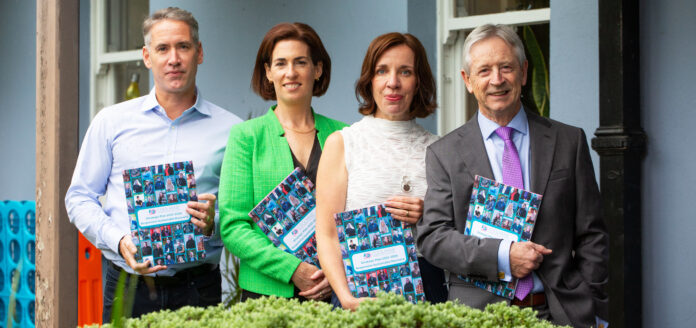
PAULINE McKeown, CEO of Coolmine, the national drug and alcohol rehabilitation service which has supported more than 500 people in the Mid West in the last year, believes recovery is possible for everyone given the right supports.
But it’s harder for some than others as they have been traumatised by issues such as domestic violence and homelessness or have been pushed to the margins of society having become involved with criminality and the legal system.
Which is why Coolmine has launched a four-year plan, titled ‘Responsive, Sustainable Recovery’, to reach out to those who may find it harder to approach the services and to provide safe space for the most vulnerable, such as women and their children.
There has been huge increase in demand – almost 35 per cent – for Coolmine residential services in the first six months of this year, Pauline told the Limerick Post.
Much of this is due to the availability of cocaine and the fact that it is now overtaking heroine as a drug of choice in Ireland.
The proof is in the pudding with 1,500 adults in residential care in Coolmine facilities nationally over the last 12 months, two of those units being in Limerick.
Speaking about the power of the therapeutic community, Pauline points to the example of the Westbourne mother and child facility in Limerick.
“The key to success in this project is enabling women and their children to stay together as a family while the woman works on recovery. There are childcare facilities and a place to stay with therapists on site,” she explains.
“Women who come from a home where there was domestic violence or substance abuse are vulnerable when they start using themselves. We currently have just two of these facilities in the country and 12 women and their children in the Limerick one.
“Keeping families together while the adult is on their recovery journey allows us to break the intergenerational cycle of substance abuse.”
The Coolmine services for men and women currently has 56 men and 24 women who have been assessed and are suitable for residential programmes, but there are no places for them as yet, the CEO explained.
A study which tracked 144 people in recovery programmes found that, after two years, seven in 10 were still drug free and almost half were in education or in employment. More than nine in 10 were not engaged in any kind of criminality.
“That’s how therapeutic communities work,” says Pauline. “But we need to plan for the future and provide the resources for people to succeed in recovery.”










